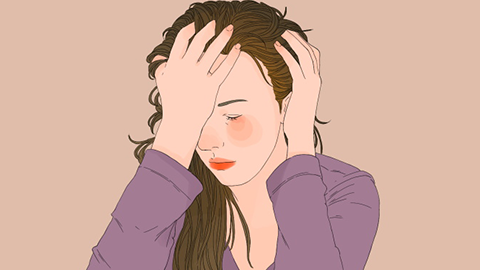Why does anxiety disorder flare up at night?
Anxiety symptoms that occur at night are generally caused by factors such as circadian hormone fluctuations, inward-focused attention during nighttime, generalized anxiety disorder, panic disorder, or sleep apnea syndrome. It is recommended to seek medical attention promptly, identify the underlying cause, and receive appropriate treatment under a doctor's guidance. Specific analysis is as follows:

1. Circadian hormone fluctuations: Abnormal elevation of stress hormones such as cortisol at night can stimulate the nervous system and trigger anxiety. Avoid vigorous activity one hour before bedtime; instead, practice meditation or gentle stretching to help stabilize hormone levels.
2. Inward-focused attention at night: During the day, external distractions are abundant, but at night attention turns inward toward worries, amplifying feelings of anxiety. Reading light, relaxing books before bed can redirect focus onto the content and reduce excessive rumination.
3. Generalized anxiety disorder: Characterized by persistent, excessive worry, nighttime anxiety often worsens and disrupts sleep. Patients may take medications such as buspirone hydrochloride tablets, tandospirone citrate capsules, or lorazepam tablets as prescribed, along with psychological counseling.
4. Panic disorder: Intense episodes of anxiety may suddenly occur at night, accompanied by chest tightness, palpitations, and other symptoms. Medications such as alprazolam tablets, paroxetine hydrochloride tablets, or sertraline tablets should be taken as directed, while breathing relaxation techniques should be learned to manage acute episodes.
5. Sleep apnea syndrome: Nighttime breathing pauses lead to oxygen deprivation, causing anxious awakenings. Continuous positive airway pressure (CPAP) therapy may be used as prescribed; in severe cases, uvulopalatopharyngoplasty (UPPP) surgery may be performed to improve airway structure and reduce hypoxic events.
In daily life, keep the bedroom quiet and comfortable, and avoid placing electronic devices in the room. Avoid consuming coffee or strong tea before bedtime, and do not eat dinner excessively late or too heavily. Maintain a regular sleep schedule by going to bed at the same time every day to gradually establish a stable sleep rhythm.




